Collective Collection
A Collective Collection refers to the shared resources of multiple libraries, archives, and museums. Collective Collections can be leveraged to benefit all institutional stakeholders, including researchers, scholars, students, and patrons.
OCLC Research’s Collective Collection work provides evidence and insight to support decision-making into how cultural heritage institutions organize shared collections and services. Through this work, OCLC Research is helping to create a more connected, collaborative landscape for libraries, archives, and museums, with the goal of making collections more accessible, impactful, and cost-efficient.
Publications
Narrow by
-
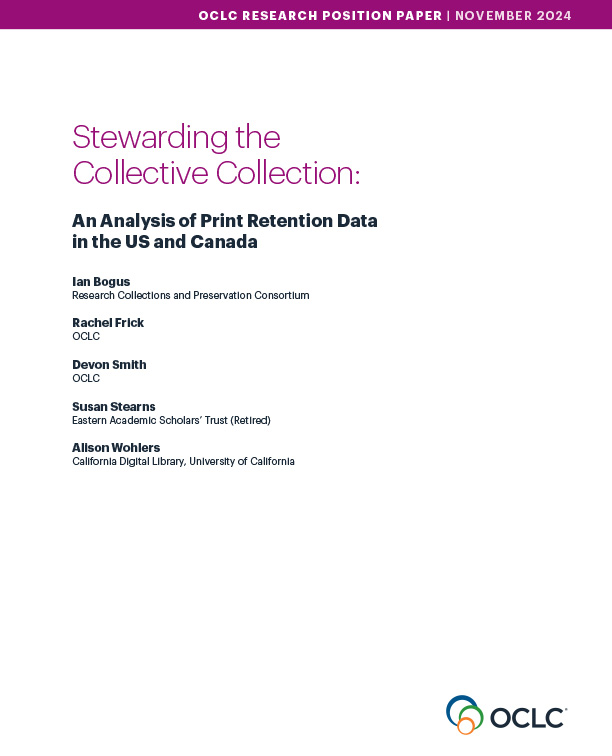
Making Shared Print Work: Insights on Workflows, Data, and Tools
13 February 2026
OCLC Research
Explore shared print workflows, data, and tools that support collective collections, along with gaps and opportunities to strengthen the future of shared print programs.
-

Stewarding the Collective Collection: An Analysis of Print Retention Data in the US and Canada
8 November 2024
Ian Bogus, Rachel Frick, Devon Smith, Susan Stearns, and Alison Wohlers
Analyzes shared print retention data from the OCLC Shared Print Registry and OCLC WorldCat to support collective collection stewardship. This report was written in collaboration between OCLC and the Partnership for Shared Book Collections.
-
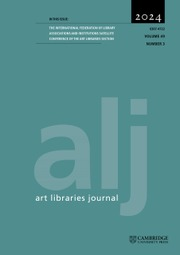
Specialized and Decentralized: Stewardship of the Art Research Collective Collection
7 November 2024
Chela Scott Weber, Mercy Procaccini, Dennis Massie, Brian Lavoie
Shares findings and recommendations from the Operationalizing the Art Research Collective Collection project to provide art libraries with important resources as they seek to address their sustainability challenges through collaborative approaches.
-
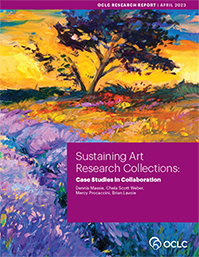
Sustaining Art Research Collections: Case Studies in Collaboration
18 April 2023
Dennis Massie, Chela Scott Weber, Mercy Procaccini, Brian Lavoie
This report shares recommendations for building successful collaborations and identifies typical challenges library partnerships navigate based on case study research of current art library collaborations.
-
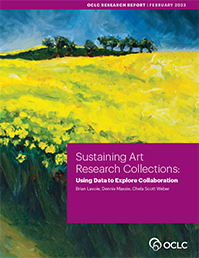
Sustaining Art Research Collections: Using Data to Explore Collaboration
15 February 2023
Brian Lavoie, Dennis Massie, Chela Scott Weber
This report explores collaboration opportunities between art, academic, and independent research libraries by analyzing WorldCat bibliographic and holdings data and WorldShare interlibrary loan transaction data.
-
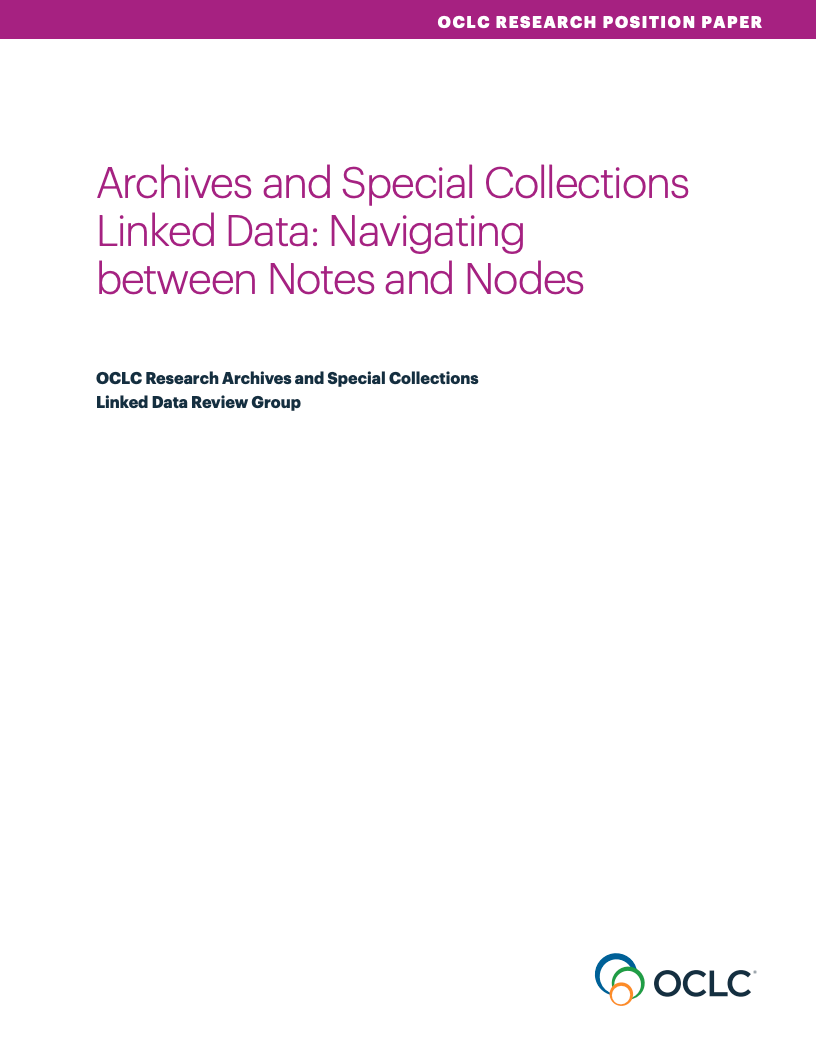
Archives and Special Collections Linked Data: Navigating between Notes and Nodes
21 July 2020
OCLC Research Archives and Special Collections Linked Data Review Group
This publication shares the findings from the Archives and Special Collections Linked Data Review Group, which explored key areas of concern and opportunities for archives and special collections in transitioning to a linked data environment.
-
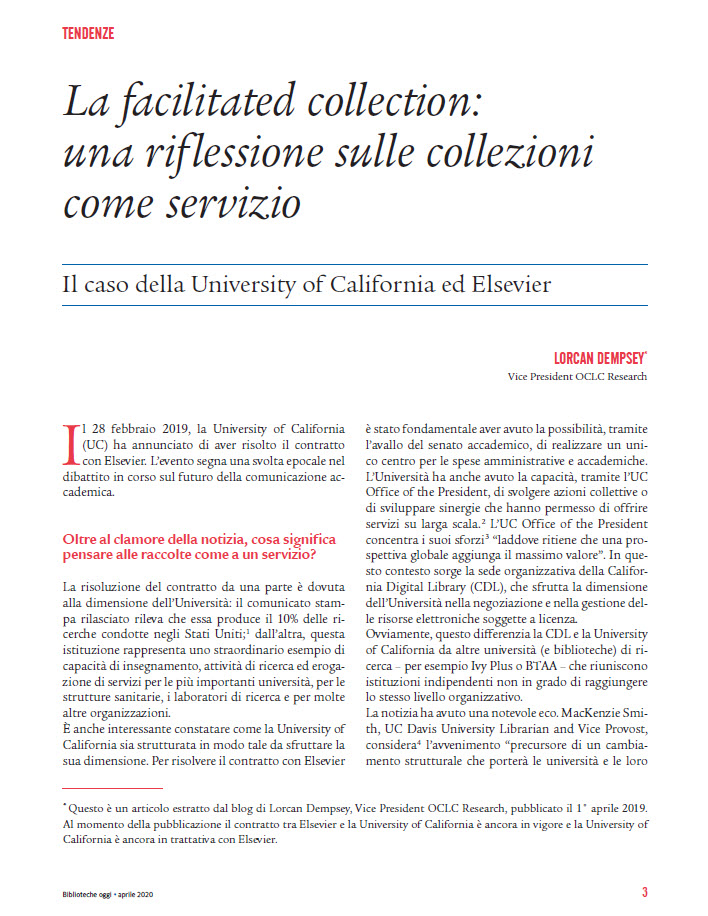
La facilitated collection: una riflessione sulle collezioni come servizio
21 April 2020
Lorcan Dempsey
The post considers how the contract termination between the University of California and Elsevier has signaled a change for our scholarly communication models.
-
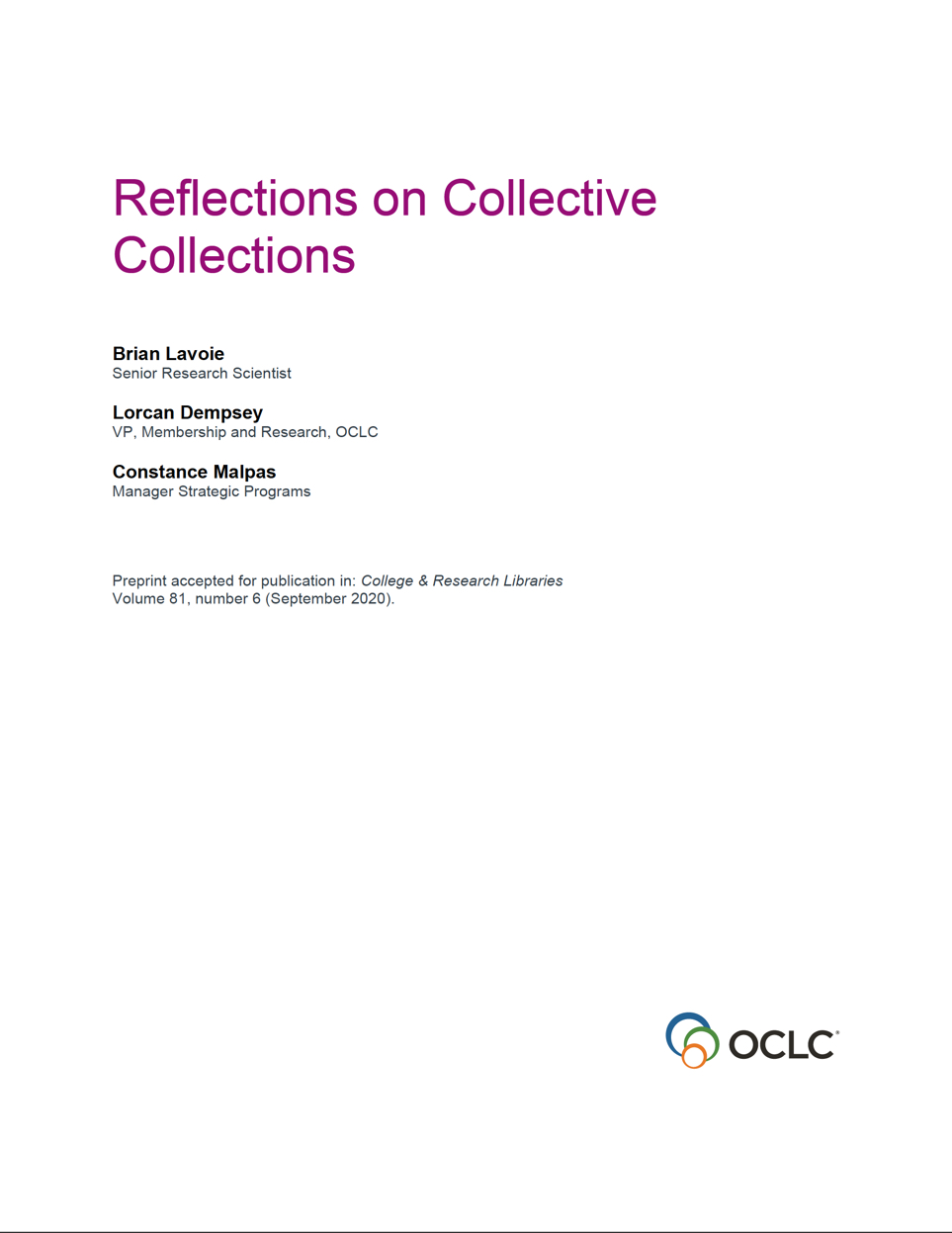
Reflections on Collective Collections
16 January 2020
Brian Lavoie, Lorcan Dempsey, Constance Malpas
Collective collections are the combined holdings of a group of libraries, analyzed and possibly managed as a unified resource. Constructing, understanding, and operationalizing collective collections is an increasingly important aspect of collection management for many libraries. This article presents some general insights about collective collections, drawn from a series of studies conducted by OCLC.
-
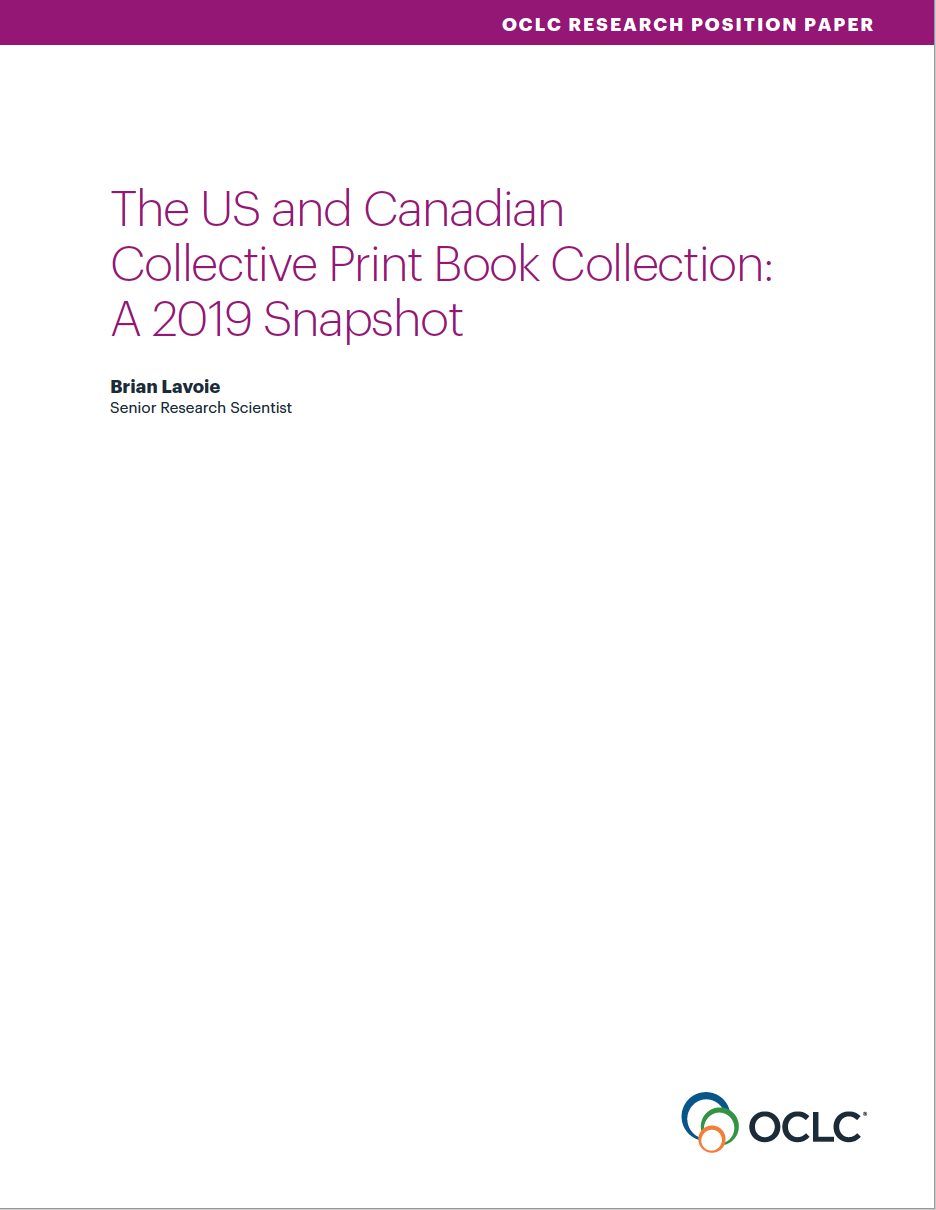
The US and Canadian Collective Print Book Collection: A 2019 Snapshot
26 September 2019
Brian Lavoie
In this position paper, Lavoie traces the contours of the US and Canadian collective print book collection—the collective print book holdings of all libraries in the US and Canada whose collections are registered in WorldCat. The paper examines the US/Canadian collective print book collection for insight and trends and includes a new rendering of the mega-regional map of US/Canadian Collective Print Book Collections.
-
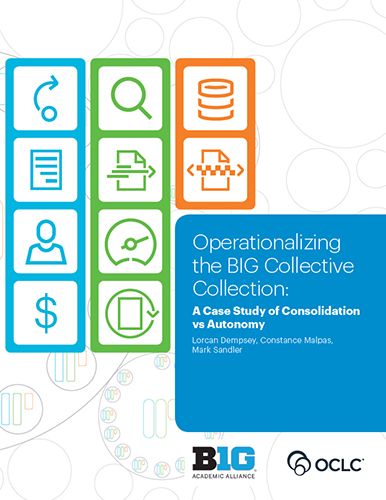
Operationalizing the BIG Collective Collection: A Case Study of Consolidation vs Autonomy
20 August 2019
Lorcan Dempsey, Constance Malpas, Mark Sandler
The proposed framework recommends strategies for advancing the Big Ten Academic Alliance’s (BTAA) collective collections toward a more purposeful coordination of their print collections. It defines four traits of a purposeful collective collection that can also apply broadly to other consortium settings.